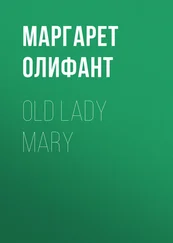Маргарет Олифант - Brownlows
Здесь есть возможность читать онлайн «Маргарет Олифант - Brownlows» — ознакомительный отрывок электронной книги совершенно бесплатно, а после прочтения отрывка купить полную версию. В некоторых случаях можно слушать аудио, скачать через торрент в формате fb2 и присутствует краткое содержание. Жанр: foreign_prose, literature_19, foreign_antique, на английском языке. Описание произведения, (предисловие) а так же отзывы посетителей доступны на портале библиотеки ЛибКат.
- Название:Brownlows
- Автор:
- Жанр:
- Год:неизвестен
- ISBN:нет данных
- Рейтинг книги:5 / 5. Голосов: 1
-
Избранное:Добавить в избранное
- Отзывы:
-
Ваша оценка:
- 100
- 1
- 2
- 3
- 4
- 5
Brownlows: краткое содержание, описание и аннотация
Предлагаем к чтению аннотацию, описание, краткое содержание или предисловие (зависит от того, что написал сам автор книги «Brownlows»). Если вы не нашли необходимую информацию о книге — напишите в комментариях, мы постараемся отыскать её.
Brownlows — читать онлайн ознакомительный отрывок
Ниже представлен текст книги, разбитый по страницам. Система сохранения места последней прочитанной страницы, позволяет с удобством читать онлайн бесплатно книгу «Brownlows», без необходимости каждый раз заново искать на чём Вы остановились. Поставьте закладку, и сможете в любой момент перейти на страницу, на которой закончили чтение.
Интервал:
Закладка:
This money, which Mrs. Fennell regretted so bitterly for a long time, was nothing but a nuisance to John Brownlow. He advertised and employed detectives, and did every thing a man could do to find Phœbe Thomson and relieve himself of the burden. But Phœbe Thomson was not to be found. He sought her far and near, but no such person was to be heard of—for, to be sure, a poor soldier’s wife was not very likely to be in the way of seeing the second column of the “Times;” and if she should happen to be Mrs. Smith or Mrs. Doherty by marriage, nobody but herself and her husband might be aware that she had ever been Phœbe Thomson. Anyhow, all the advertisements and all the detectives failed; and after working very hard at it for a year or more, John Brownlow very quietly, and to his own consciousness alone, d—d Phœbe Thomson, and gave up the useless investigation.
But he was a man who had eyes, and a strong sense of justice. When he thought of the poor Fennells, his anger rose against the wretched old woman who had laid on him the burden of her money. Poor Mrs. Fennell’s son was good for nothing, but she had a daughter who was good for much; and Bessie had a lover who would gladly have married her, had that wicked old miser, as John Brownlow in his indignation said, left only a thousand pounds out of her fifty to help the paralytic father and passionate mother. Bessie’s lover was not mercenary—he was not covetous of a fortune with his wife; but he could not marry all the family, or work for the old people, as their daughter had to do. This was what Mrs. Fennell meant when she raved of poor Bessie and her prospects. But Bessie herself said nothing. The lover went very sorrowfully away, and Bessie was silent and went on with her work, and made no show of her trouble. John Brownlow, without knowing it, got to watch her. He was not aware for a long time why it was that, though he always had so much to do, he never missed seeing Bessie when by chance she passed his windows. As luck would have it, it was always at that moment he raised his eyes; and he did his best to get pupils for her, “taking an interest” in her which was quite unusual in so quiet a man. But it was not probable that Bessie could have had much of an education herself, much less was qualified to give it to others. And whether it was want of skill, or the poverty of her surroundings, her poor dress, or her mother’s aspect and temper, it is certain that, diligent and patient and “nice” as she was, pupils failed her. She did not get on; yet she kept struggling on, and toiling, keeping a smile in her eyes for every body that looked friendly on her, whatever sinking there might be in her heart. And she was a slight fragile little creature to bear all that weight on her shoulders. John Brownlow, without knowing it, watched her little figure about the streets all the year through, marveling at that “soft invincibility,” that steady standing up against defeat and every kind of ill which the gentle soul was capable of. And as he watched her, he had many thoughts in his mind. He was not rich, as we have said; on the contrary, it would have been his bounden duty, had he done his duty, to have married somebody with a modest little fortune, who would have helped him to keep up the house in the High Street, and give the traditionary dinners; and to maintain his wife’s family, if he were to marry, was something out of the question. But then that fifty thousand pounds—this money which did not belong to him but to Phœbe Thomson, whosoever she was, and wheresoever she might be. All this produced a confusion of thought which was of very strange occurrence in Mr. Brownlow’s office, where his ancestors for generations had pondered over other people’s difficulties—a more pleasing operation than attending to one’s own. Gradually, as time wore on, Phœbe Thomson grew into a more and more mythical figure to Mr. Brownlow’s mind, and Bessie Fennell became more and more real. When he looked up one winter’s afternoon and saw her passing the office window in the glow of the frosty sunset, which pointed at her in its clear-sighted way, and made thrice visible the thinness of her cheek and the shabbiness of her dress, Mr. Brownlow’s pen fell from his fingers in amaze and self-reproach. She was wearing herself out, and he had permitted her to do so, and had sat at his window thinking about it for two whole years. Two years had passed since Mrs. Thomson’s death. All the investigations in the world had not been able to find Phœbe; and John Brownlow was master of the old woman’s fifty thousand pounds; and the Fennells might be starving for any thing he could tell. The result was, that he proposed to Bessie, to the unbounded amazement not only of the town of Masterton, but even of the county people, who all knew Mr. Brownlow. Probably Bessie was as much surprised as any body; but she married him after a while, and made him a very good wife. And he pensioned her father and mother in the most liberal way, and saw as little of them as possible. And for a few years, though they did not give many dinners, every thing went on very well in the big brick house.
I tell the story thus briefly, instead of introducing these people to show their existence for themselves, because all this is much prior to the real date of this history. Mrs. Brownlow made a very good and sweet wife; and my own opinion is that she was fond of her husband in a quiet way. But, of course, people said she had married him for his money, and Bessie was one of those veiled souls who go through the world without much faculty of revealing themselves even to their nearest and dearest. When she did, nobody could make quite sure whether she had enjoyed her life or merely supported it. She had fulfilled all her duties, been very kind to every body, very faithful and tender to her husband, very devoted to her family; but she died, and carried away a heart within her of which no man seemed ever to have found the key. Sara and John were very little at the time of her death—so little, that they scarcely remembered their mother. And they were not like her. Little John, for his part, was like big John, as he had a right to be; and Sara was like nobody else that ever had been seen in Masterton. But that is a subject which demands fuller exposition. Mr. Brownlow lived very quietly for some years after he lost his wife; but then, as was natural, the ordinary course of affairs was resumed. And then it was that the change in his fortunes became fully evident. His little daughter was delicate, and he got a carriage for her. He got ponies for her, and costly governesses and masters down from town at the wildest expense; and then he bought that place in the country which had once been Something Hall or Manor, but which Dartfordshire, in its consternation, henceforward called Brownlow’s. Brownlow’s it was, without a doubt; and Brownlows it became—without the apostrophe—in the most natural way, when things settled down. It was, as old Lady Hetherton said, “quite a place , my dear; not one of your little bits of villas, you know.” And though it was so near Masterton that Mr. Brownlow drove or rode in every day to his office, its grounds and gardens and park were equal to those of any nobleman in the county. Old Mrs. Thomson’s fifty thousand pounds had doubled themselves, as money skillfully managed has a way of doing. It had got for her executor every thing a man could desire. First, the wife of his choice—though that gift had been taken from him—and every other worldly good which the man wished or could wish for. He was able to surround the daughter, who was every thing to him—who was more to him, perhaps, than even his wife had ever been—with every kind of delightsome thing; and to provide for his son, and establish him in the world according to his inclinations; and to assume, without departing from his own place, such a position as no former Brownlow had ever occupied in the county. All this came to John Brownlow through old Mrs. Thomson; and Phœbe Thomson, to whom the money in reality belonged, had never turned up to claim it, and now there was but one year to run of the five-and-twenty which limited his responsibilities. All this being made apparent, it is the history of this one year that I have now to tell.
Читать дальшеИнтервал:
Закладка:
Похожие книги на «Brownlows»
Представляем Вашему вниманию похожие книги на «Brownlows» списком для выбора. Мы отобрали схожую по названию и смыслу литературу в надежде предоставить читателям больше вариантов отыскать новые, интересные, ещё непрочитанные произведения.
Обсуждение, отзывы о книге «Brownlows» и просто собственные мнения читателей. Оставьте ваши комментарии, напишите, что Вы думаете о произведении, его смысле или главных героях. Укажите что конкретно понравилось, а что нет, и почему Вы так считаете.












